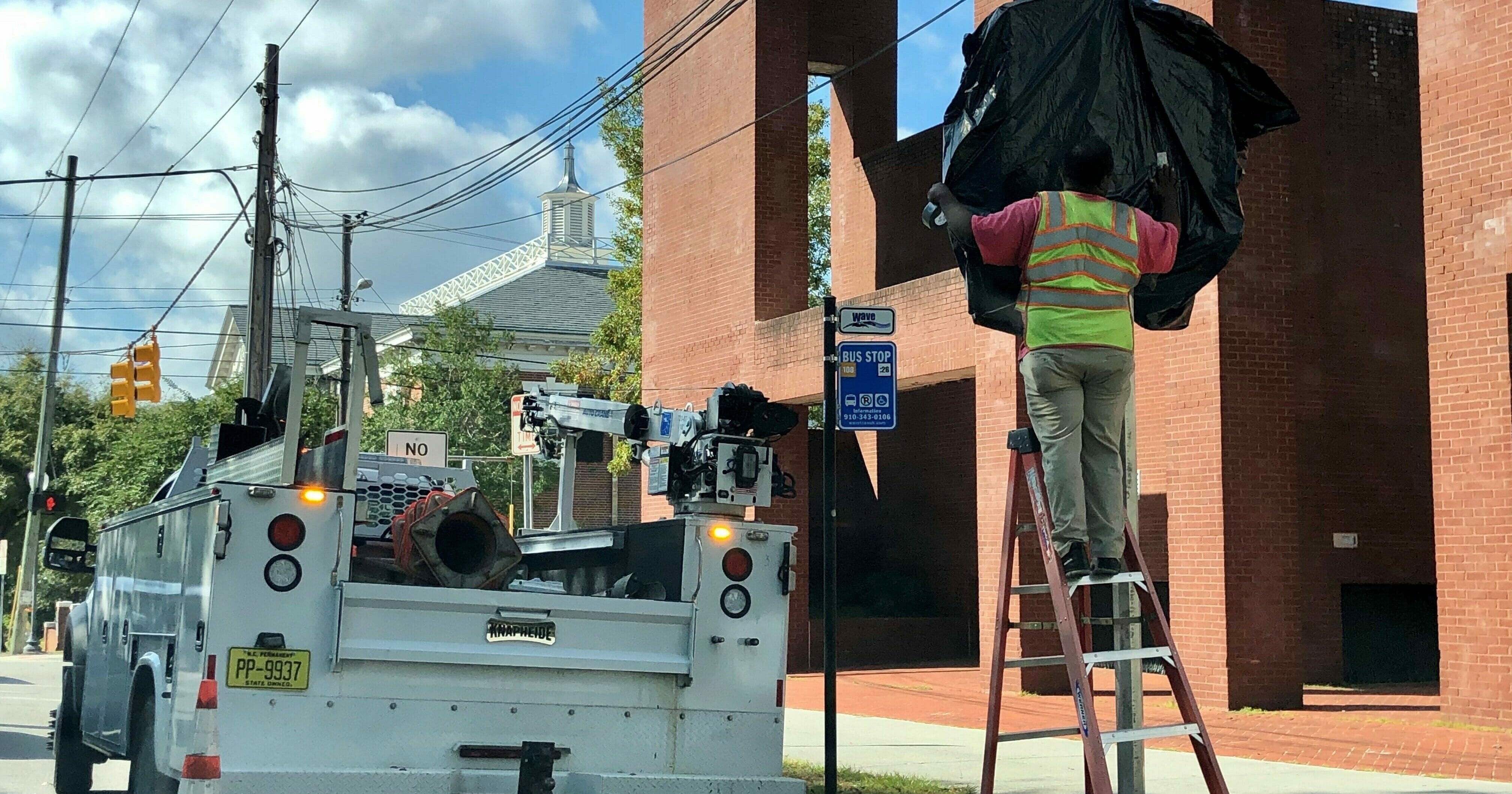
Historical Marker Now Refers to 1898 Violence as 'Coup' Instead of 'Race Riot'
The state of North Carolina is moving away from using the phrase “race riot” to describe the violent overthrow of the Wilmington government in 1898 and is instead using the word “coup” on the highway historical marker that will commemorate the dark event.
The marker was dedicated Friday in Wilmington.
The heading on the marker reads “Wilmington Coup,” but the originally approved text referred to a “race riot,” which eventually was deleted.
“You don’t call it that anymore because the African-Americans weren’t rioting,” Ansley Herring Wegner, administrator of the North Carolina Highway Historical Marker Program, said Thursday.
“They were being massacred.”
In 1898, white Democrats violently overthrew the fusion government of legitimately elected blacks and white Republicans in Wilmington.
The Democrats burned and killed their way to power in what’s viewed as a flashpoint for the Jim Crow era of segregation and the only successful coup d’etat in American history.
The marker stands outside the Wilmington Light Infantry building, where the mob of white supremacists gathered before they marched to The Daily Record, the African-American newspaper, and burned it to the ground.
Alfred Moore Waddell, who led the march, took over as mayor.
The highway marker for the editor of the paper, Alex Manly, includes the phrase “race riot,” but it was dedicated 25 years ago.
Meanwhile in Chapel Hill, a temporary logo has been placed over one of the plaques at the University of North Carolina football stadium that’s dedicated to a man who was a coup leader.
A newspaper report at the time said Kenan Sr. was in charge of the machine gun used during the coup.
News outlets reported that photos this week show the logo covering Kenan’s name.
The original text for the 1898 marker, approved in December 2017, included Waddell’s name and made other references that the public found offensive, Wegner said.
The committee of historians that approves the language for markers went back to work and approved new text in the spring of 2018, Wegner said.
One of the people unhappy with the original text was Deborah Dicks Maxwell, president of the New Hanover County branch of the NAACP.
She was especially upset that the original language said the “violence left up to 60 blacks dead” because it’s unclear how many black people died.
“We’ll never know how many people died,” she said. “Black lives didn’t matter at that time in terms of reporting or documentation.”
The highway markers, known as “history on a stick,” have strict space limits — typically five to six lines of 25 characters each for 3-inch letters.
The coup marker has 1.5-inch letters to allow more text.
The revised marker deletes the names of Waddell and Manly, since he has own marker. “When you have so few words, you’ve got to choose the best ones,” Wegner said.
Maxwell hopes the marker will help “the world to understand that it wasn’t a riot,” she said.
“We need to educate our children that this did happen — and the general public,” Maxwell said.
“A lot of things that happen to African-Americans are hidden swept under a rug. We need to reveal all parts of our history as a country.”
The Western Journal has reviewed this Associated Press story and may have altered it prior to publication to ensure that it meets our editorial standards.
Truth and Accuracy
We are committed to truth and accuracy in all of our journalism. Read our editorial standards.
Advertise with The Western Journal and reach millions of highly engaged readers, while supporting our work. Advertise Today.












